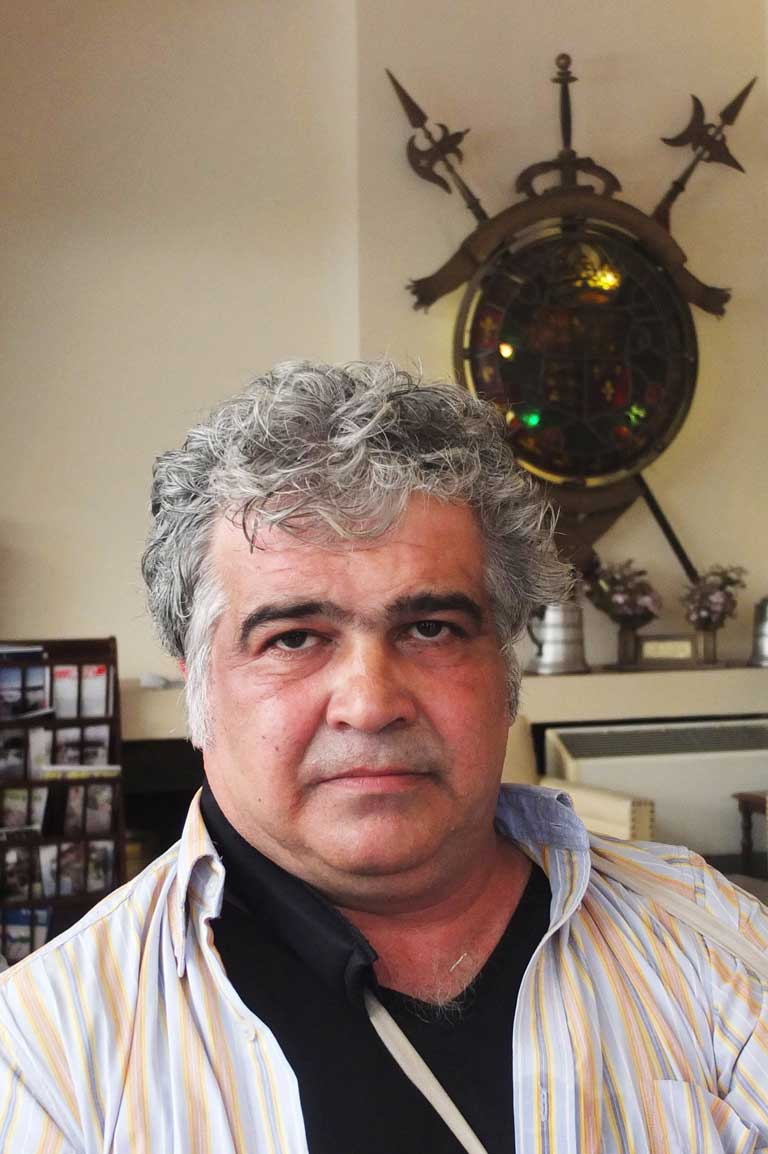In Praise of Hatred, By Khaled Khalifa, trans. Leri Price
This novel of repression and subversion in Syria explores the lure of fanaticism

Your support helps us to tell the story
From reproductive rights to climate change to Big Tech, The Independent is on the ground when the story is developing. Whether it's investigating the financials of Elon Musk's pro-Trump PAC or producing our latest documentary, 'The A Word', which shines a light on the American women fighting for reproductive rights, we know how important it is to parse out the facts from the messaging.
At such a critical moment in US history, we need reporters on the ground. Your donation allows us to keep sending journalists to speak to both sides of the story.
The Independent is trusted by Americans across the entire political spectrum. And unlike many other quality news outlets, we choose not to lock Americans out of our reporting and analysis with paywalls. We believe quality journalism should be available to everyone, paid for by those who can afford it.
Your support makes all the difference.Khaled Khalifa's third novel was banned on publication in Syria, even though its political turbulence never arrives in the present day but focuses on the decade following 1970, when the Muslim Brotherhood became locked in deadly battle with the state's Baathist party. The battle ended in 1982, in an attempted uprising by the Brotherhood which the government crushed in Hama, levelling parts of the city and leaving between 10,000 and 25,000 people (mainly civilians) dead or wounded in a singularly brutal intervention.
Neither the Muslim Brotherhood nor the Baath is mentioned by name in the novel, but it is clear what Khalifa's points of references are, and also why this book was seen as a threat to the current beleaguered regime. Historians might trace a line from the troubles that erupted around Aleppo in the Seventies to the conflict on its streets today.
An unnamed female narrator is the central fanatic of the story. That Khalifa has chosen to profile fanaticism from a feminine perspective, rather than the more predictable "male martyr", is this book's great innovation. It is a courageous endeavour with sometimes exhilarating, sometimes off-key results.
Religious fanaticism offers the narrator the "pleasure of absolute certainty" and to fan its fires, she must mobilise her capacity for hate. The veiled young woman, growing up in the cloistered environment of her grandparents' home, excels at cultivating hate, which comes to feel as passionate and purposeful a force as love. At one point, "I realised hatred was worthy of praise, as it lives within us exactly as love does. It grows moment by moment in order to settle finally into our souls, and we don't want to escape it even when it causes us pain." Even when she finds herself imprisoned, there is a peculiar sisterhood of hate between the incarcerated women.
Her religious fervour is pitted against an erotic awakening and these two also do battle until the end. She gives in to the thrill of her emerging sexuality and her - sometimes lesbian - carnal impulses, but then pulls away and berates her weakness. Khalifa writes compellingly about this troubled eroticism in parts, but strays into clumsy contrivance or hyperbole at other times.
While the story is ostensibly a domestic one about the narrator and her wealthy household of aunts who must choose between a life of self-denying spinsterhood or rebellious marriage, at its core it is about violence: the religiously motivated violence of the Muslim Brotherhood, and the counter-violence inflicted by a secular government. The two forces are locked into a mutual cycle of hatred, each atrocity sparking the next.
Khalifa is said to have spent 13 years working on the book, a finalist for the International Prize for Arabic Fiction. "The main thing I wanted to get at was the struggle of two fundamentalisms," he has said. The novel captures not just the tragedy in this, but the self-defining "heroism" for those willing to live and die for their cause.
Join our commenting forum
Join thought-provoking conversations, follow other Independent readers and see their replies
Comments